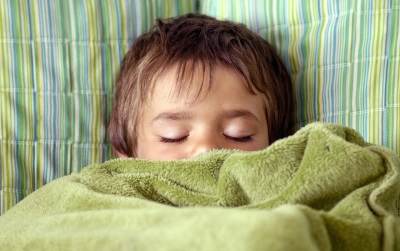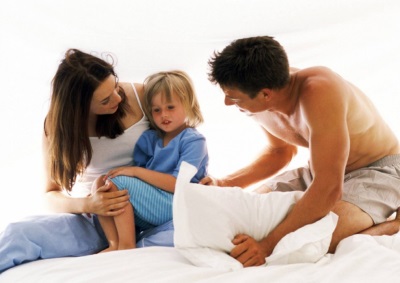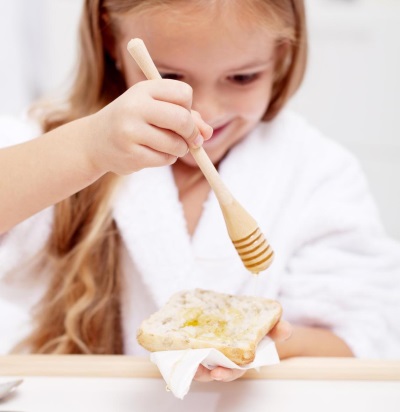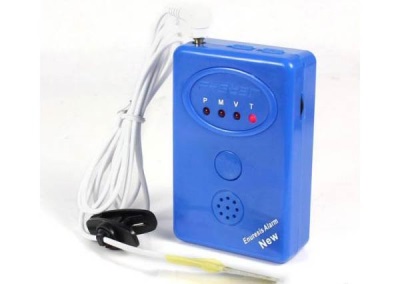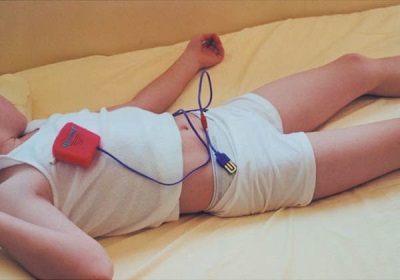Causes and treatment of enuresis - urinary incontinence in children
Such a problem as enuresis is one of the most significant in pediatric practice, because it has a socio-psychological aspect. Children with this pathology have to constantly experience discomfort. Why does urinary incontinence occur and how to help a child with such a delicate problem?
Kinds
Enuresis can be isolated when there is no incontinence during the daytime, and also combined if incontinence is manifested during the nighttime and during the daytime. If enuresis is the only symptom, then this type of incontinence is called monosymptomatic. When a child has urological, endocrine, psychological or neurological disorders, such an enuresis is considered polysymptomatic.
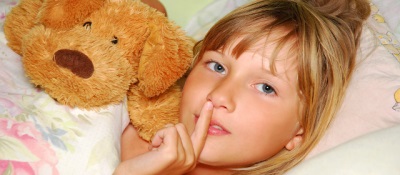
Also distinguish the primary form of the disease and the secondary. If enuresis began at an early age, the child did not have a period without night urination, and there is no connection with stress and no symptoms of the disease, they speak of a primary form. If the child has not urinated at night for more than 6 months, and they also suspect the effect on the child of stress, various diseases, mental factors and other causes, they diagnose secondary enuresis.
The reasons
The following factors lead to the appearance of enuresis:
- Heredity, causing a violation of vasopressin. 50% of children with enuresis have relatives with a similar problem. If one parent had enuresis, there is a 40 percent chance that the baby will show this problem. If both parents had incontinence, the risk of developing the same pathology in a child is 70-80%.
- Decreased functional capacity of the bladder. This means that the child has a reduced amount of urine, which he can hold in the bladder until the moment of a strong desire to urinate. Until the age of twelve, this volume is calculated as follows: the age in years is multiplied by 30 and 30 added. The capacity is called low, which is less than 2/3 of the norm. With this capacity, all the urine that is produced overnight cannot be kept inside.
- Diseases of the urinary system. Enuresis can be a symptom of congenital abnormalities, as well as occur in pyelonephritis or cystitis.
- Neurological pathology. The child may experience a delay in the maturation of the nervous system, so he later begins to control urination. Pathologies such as epilepsy, infectious or organic brain diseases can also lead to enuresis.
- Psychiatric diseases. Enuresis is noted for schizophrenia and intellectual impairment.
- The impact of psychological factors - nervous and physical overload, stress, depression, conflict and others.
- Chronic constipation.
- Sugar or diabetes insipidus.
- Worm infection.
Neurotic enuresis
Neurosis and nervous disorders often lead to urinary incontinence. This type of enuresis can result in severe stresses, such as relocation, loss of loved ones, divorce parents, punishment, loss of a pet, the birth of a sister or brother, a change of school and others. Also this type of incontinence may appear after severe overwork.
To get rid of neurotic enuresis, it is important to establish the cause of the neurosis of the baby, and then eliminate it. In treatment, much attention is paid to psychotherapy, often prescribed sedatives.
Diagnostics
To identify such a problem is quite simple, because the child and his parents will complain of frequent or permanent incontinence. Next, the doctor must determine the cause of this trouble and determine the form of enuresis, since this is important for the purpose of treatment.
To correctly determine the causes of incontinence, you need to know:
- Whether there was an enuresis at parents or other relatives of the child.
- Was there a period of "dry nights".
- Does the child have a nocturia (more urine is released at night than during the daytime).
- What is the specific density of urine released at night.
- Whether the child has increased thirst and does not drink a lot in the evening.
- Does your baby have any mental or neurological problems?
Also prescribed the study of hormones, consultation of narrow specialists, urine and blood tests, ultrasound study, uroflowmetry and other tests. Parents are required to keep a diary in which to record the volume and frequency of urination.
Treatment
The main emphasis in the treatment of enuresis should be given to non-drug methods - to adjust the regime, to motivate the child, to follow a certain diet, to do therapeutic exercises. It is very important to set up a child for treatment success, constantly praise for each dry night, explain why it is important not to drink and go to the toilet before going to bed.
If the problem is small capacity, then the doctor will advise you to train the bladder. To do this, the child is given a lot of drinking during the day and offered to endure as long as possible.
In many cases, physiotherapy and psychotherapy are used in the treatment. In hereditary enuresis, a synthetic analogue of the hormone vasopressin is prescribed. Also, drug therapy is indicated for neurogenic disorders of the bladder, neurosis, and somatic diseases.
Folk remedies
Traditional medicine can help in getting rid of enuresis, as additional measures. In addition, before using any national remedy, you should consult with your doctor.
You can give a child:
- Dill seed infusion. A large spoonful of seeds should be brewed with a glass of boiling water and left for one hour. Children under 10 years old are given 1/2 cup, over 10 years old - in a whole glass. The tool is recommended to drink on an empty stomach for ten days.
- Decoction Hypericum. Two spoons of chopped herbs, pour a glass of water and boil for ten minutes. The cooled broth give 1 / 2-1 glass for the night.
- Honey. Give a teaspoon at bedtime for the baby daily. This product retains fluid well and soothes the nerves.
Opinion E. Komarovsky
The famous pediatrician notes that enuresis is a temporary phenomenon associated with the formation in the child's brain of a special focus that stimulates urination during sleep. Since such a focus occurs in the maturing brain, this unpleasant phenomenon disappears over time. According to Komarovsky, the existing and used methods of correction of enuresis do not have full effectiveness, although in certain children certain methods of treatment bring good results.
According to the popular doctor, the most effective method of incontinence treatment, popular abroad, but practically not used in our country, is urinary enuresis. It is a moisture-sensitive sensor connected to the alarm clock by a thin wire or wireless connection, which is placed in the child’s panties.
As soon as a child has at least a drop of urine, the sensor responds to it and the alarm vibrates or rings. As a result, the child wakes up, stopping urination, and goes to urinate in the toilet. After two or three months of use of such an alarm clock, cure of enuresis is observed in almost all children.
Since the method involves the ability of the child to use the alarm clock, it is recommended for children with enuresis older than 7 years of age.
Tips for parents
- It is important that the situation in the family was calm, especially in the evening. Avoid active games and watching TV in the evening, do not punish the child and do not quarrel with him in the evening.
- You can not punish or scold the baby after urinating into bed. This does not solve the problem, but only worsens your relationship and your child’s self-esteem.
- It is important to arrange a sleeping place for the child. Choose a rather hard and even bed for your baby. Hide the oilcloth completely under the sheet. Monitor the temperature and humidity in the room. Let the child learn to sleep on his back.
- If enuresis is caused by a small bladder capacity, raise the foot of the bed or place a small cushion under the knees of the child.
- It is necessary to ensure that the child goes to bed at the same time every day.
- For dinner, do not give your baby food that has a diuretic effect - fruits, vegetables, dairy products, caffeinated beverages. A good choice for an evening meal would be cereals, meat and fish dishes, boiled eggs, and weak tea. Right before bedtime, it is recommended to give the child food that can trap liquids, such as cheese, herring, honey, and bread with salt.
- It is important to ensure that the child has at least three urinations for an hour before falling asleep.
- Turn on the nightlight in the child’s room so that the baby can urinate without fear when he wakes up at night for this purpose.

